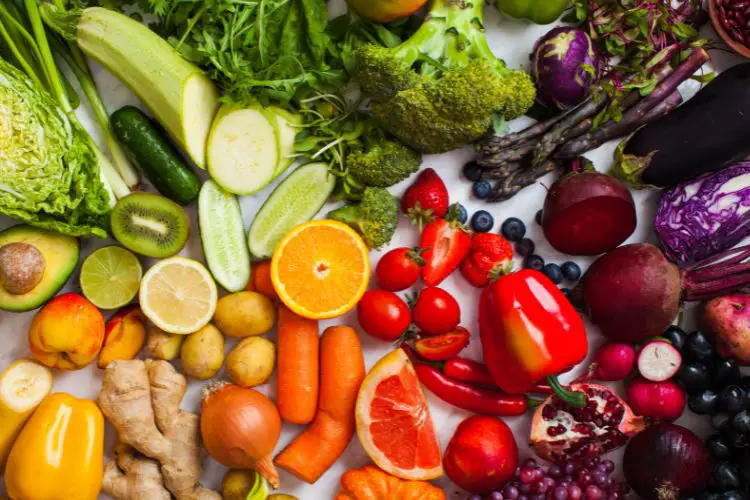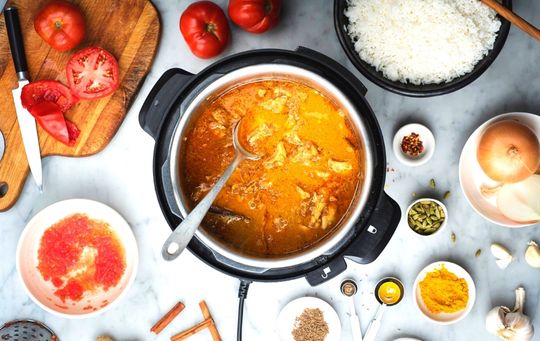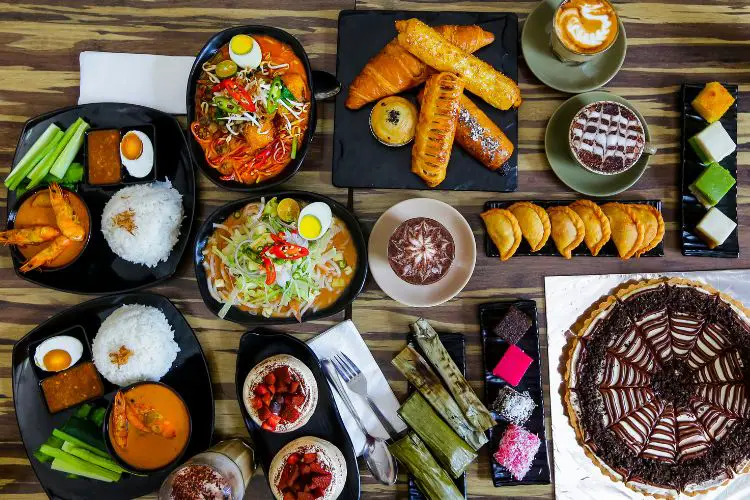What Food You Cannot Bring from Malaysia to Singapore 2023

What Food You Cannot Bring from Malaysia to Singapore? When traveling from Malaysia to Singapore, there are restrictions on bringing certain foods to maintain biosecurity and safety. Some foods you cannot bring include fresh fruits and vegetables, meat and meat products, dairy products, and eggs.
What Food You Cannot Bring from Malaysia to Singapore
| Food Items | Restrictions When Bringing from Malaysia to Singapore |
|---|---|
| Fresh Fruits and Vegetables | Prohibited due to concerns about pests and diseases. |
| Meat and Meat Products | Restricted to small quantities and subject to strict guidelines. |
| Dairy Products | Limited quantities allowed, but they must be from approved sources. |
| Eggs | Fresh eggs are generally prohibited; processed or cooked eggs may be allowed. |
| Homemade or Unpackaged Foods | Generally discouraged as they may not meet Singapore’s food safety standards. |
Key Takeaways

Understanding Singapore’s Food Import Regulations
Singapore’s strict food import regulations are not designed to put a damper on your culinary adventures but to ensure the well-being of its citizens and the preservation of its natural environment. Here are some key reasons behind these regulations:
- Food Safety: Singapore aims to guarantee that all food consumed within its borders is safe for public health. Imported food items must adhere to rigorous safety standards to prevent foodborne illnesses.
- Disease Control: Imported food can carry diseases or pests that may not exist in Singapore. Stringent regulations help prevent the introduction of harmful elements that could impact public health or local agriculture.
- Environmental Protection: Singapore is deeply committed to environmental sustainability. Food items that could harm local flora and fauna are restricted to preserve the country’s unique ecosystems.
- Supporting Local Agriculture: To promote self-sufficiency in food production, Singapore limits the import of certain agricultural products that can be locally grown.
Now that we’ve established the reasons behind these regulations, let’s delve into the specific food items you cannot bring from Malaysia to Singapore.
Food Items You Cannot Bring from Malaysia to Singapore
Singapore’s food import regulations are rigorous, and there are several food items that you cannot bring from Malaysia into the country.
Attempting to import these prohibited items can result in fines or even legal action. Here are some examples of food items that are not allowed:
1. Fresh Fruits and Vegetables
Singapore restricts the import of fresh fruits and vegetables due to concerns about plant diseases and pests that could harm local agriculture.
Unless you have obtained specific permits from the Agri-Food & Veterinary Authority of Singapore (AVA), avoid bringing fresh produce.
2. Live Animals and Birds
Bringing live animals or birds from Malaysia into Singapore is strictly prohibited due to concerns about the introduction of diseases. This includes live poultry, pets, and ornamental birds.

3. Uncooked Meat and Seafood
Raw or uncooked meat and seafood, including fresh or frozen items, are not allowed to be brought into Singapore. This regulation is in place to prevent the spread of diseases.

4. Eggs and Dairy Products
Eggs and dairy products, including cheese, yogurt, and milk, are generally not permitted. Exceptions may apply to specific products that meet stringent AVA requirements.
5. Fresh or Frozen Pork
Singapore has restrictions on the import of fresh or frozen pork due to concerns about diseases that can affect pigs. Canned pork products may be allowed if they meet AVA guidelines.
6. Homemade Pickles and Preserved Fruits
While you can bring homemade cakes and cookies for personal consumption, homemade pickles and preserved fruits are generally prohibited. This is because these items may not undergo proper processing and could pose health risks.
7. Products Containing Endangered Species
Items made from or containing parts of endangered species, such as shark fins, are strictly prohibited due to conservation efforts.
8. Herbal and Traditional Medicines
Herbal and traditional medicines are subject to stringent regulations in Singapore. It’s best to avoid bringing them unless you have obtained the necessary permits and certifications from the Health Sciences Authority (HSA).
Tips for Adhering to Singapore’s Food Import Regulations
To ensure a smooth and enjoyable visit to Singapore without running afoul of the country’s food import regulations, here are some essential tips for travelers:
1. Review AVA Guidelines
Before traveling to Singapore, thoroughly review the Agri-Food & Veterinary Authority’s guidelines and restrictions on food items. These guidelines are subject to change, so stay updated.
2. Declare Your Items
When in doubt about whether a specific food item is allowed, it’s always best to declare it when going through customs. Singapore’s customs officers can provide guidance and assess whether the item is permissible.
3. Package Carefully
Ensure that any food items you bring are well-packaged and sealed. This helps prevent spillage and maintains the freshness of the products.
4. Respect Local Customs
When in Singapore, respect local customs and traditions. Dispose of your food waste responsibly and adhere to local etiquette.
Conclusion
When traveling from Malaysia to Singapore, there are clear restrictions on certain food items that cannot be brought into Singapore.
These restrictions primarily revolve around fresh fruits and vegetables, meat and meat products, dairy items, and fresh eggs due to concerns related to pest control, diseases, and food safety.
Travelers are strongly advised to check with the relevant authorities and adhere to the guidelines to ensure a smooth and hassle-free entry into Singapore while avoiding confiscation and potential penalties. Singapore’s strict regulations aim to protect its agriculture, environment, and public health.





